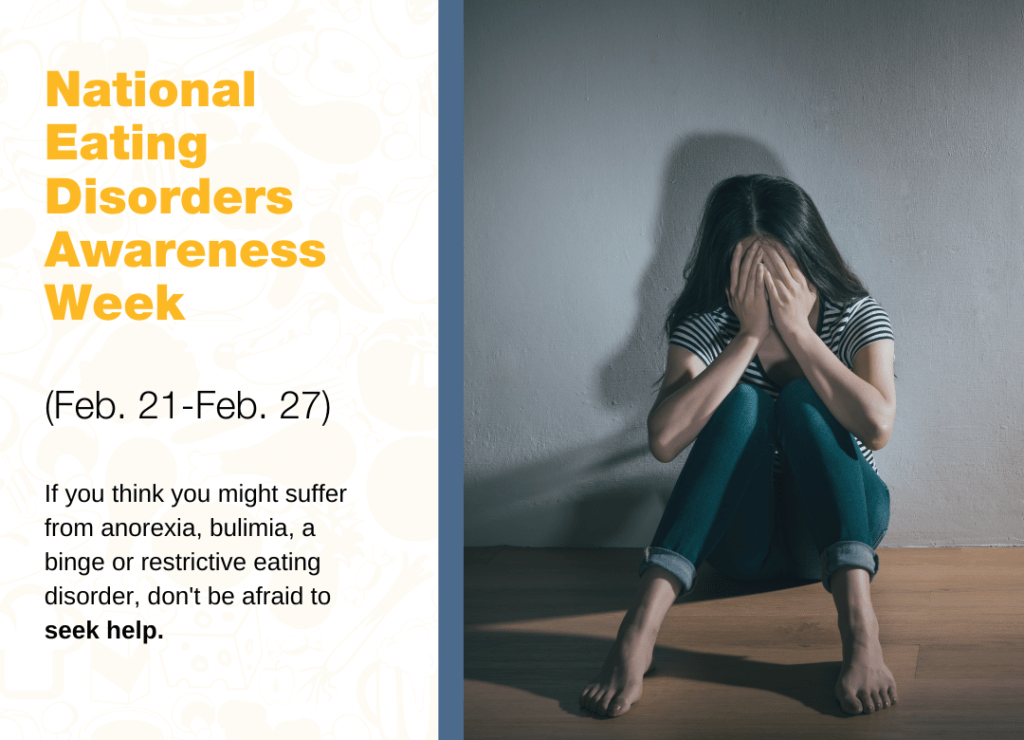10,200 deaths each year are the result of an eating disorder in an American – that can be estimated to be one death every 52 minutes. According to the American Psychological Association, eating disorders are “abnormal eating habits that can threaten your health or even your life.” This week is National Eating Disorders Awareness and we are taking the opportunity to educate the public about the realities of eating disorders and to provide hope, support, and visibility to individuals and families affected by eating disorders.
Eating disorders comes in many forms, these are the multiple categories of eating disorders:
- Anorexia nervosa: This is diagnosed when individuals have a self-perception of being overweight when they are dangerously underweight, because of this personal perception or body dysmorphia, they restrict their eating many times to the point of starvation.
- Bulimia nervosa: These are cases where individuals eat excessive amounts of food, then purge by vomiting or using laxatives to try to get rid of the food they have consumed.
- Binge eating: Individuals have out-of-control eating patterns, but don’t purge.
- Restrictive eating disorder: An eating disturbance (lack of interest in eating or food; avoidance based on the characteristics of food; concern about aversive consequences of eating) displayed by persistent failure to meet appropriate nutritional needs.
- Orthorexia Nervosa: This involves an unhealthy obsession with healthy eating. Individuals have an obsession with the “purity” of their food as well as the benefits of healthy eating. The concern is less about weight loss than the healthy eating and nutritional value.
Some of the consequences that eating disorders can have include but are not limited to damages to the cardiovascular system, problems in the gastrointestinal system, neurological disorders, and even endocrine disorders.
If you believe you might have an eating disorder or know someone close that might be going through this, you can call NEDA’s (National Eating Disorders Association) confidential eating disorders helpline Monday through Thursday from 11am to 9pm eastern time, and Friday from 11am to 5pm eastern time. NEDA also has helpline chat hours Monday through Thursday from 9am to 9pm eastern time, and Friday from 9am to 5pm eastern time.


